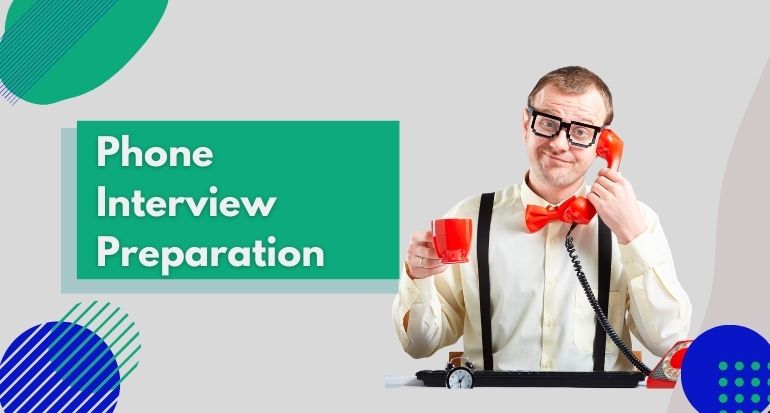Tips and Strategies to Ace Your Phone Interview
Phone interviews are a common part of the hiring process. They are typically used as a first-round screening to determine if a candidate should be brought in for an in-person interview. While they may seem less formal, they should not be taken lightly. Here are some tips to help you nail your phone interview:
Know Your Interviewer:
Ask your recruiter about the person you’ll be speaking with. Look them up on LinkedIn to see if you share any common ground or can glean any insights about their communication style from their posts or articles.
Prepare in Advance:
Conduct some research on the company and prepare a list of questions you anticipate being asked based on the role and your background. Having your resume at your fingertips can be helpful for quickly recalling dates and notable achievements.
Find a Comfortable, Quiet Space:
Settle yourself in a place where you won’t be disturbed. Turn off any devices that might interrupt the call. Avoid using speakerphone to prevent any ambient noise from being picked up.
Boost Your Confidence:
Give yourself a pep talk. Remember your worth and what you can bring to the company.
Engage Positively:
Keep your voice friendly and engaging throughout the interview. Make small talk if appropriate, and let the interviewer guide the conversation. Be yourself and show genuine enthusiasm about your career and the role.
Listen and Respond Appropriately:
Listen carefully to each question and respond with clear, concise answers. If you’re unsure whether you’ve addressed the question adequately, don’t hesitate to ask for clarification.
Take Notes:
Jot down any thoughts or questions that arise during the interview. If the conversation flows naturally, you might be able to ask some of these questions in real-time.
Ask Insightful Questions:
In addition to any questions that come up during the interview, prepare some questions ahead of time. For example:
- What qualities are you looking for in the ideal candidate?
- What are the critical success factors for this role?
- What are the company’s short and long-term goals?
- Why is this position open?
Avoid Discussing Compensation:
Unless the interviewer brings it up, don’t ask about salary or benefits during a phone interview. That conversation is typically reserved for later stages of the hiring process or should be handled through your recruiter.
Ask About Next Steps:
At the end of the interview, you can express interest in moving forward by asking about the next steps in the process.
Follow Up:
Always thank the interviewer for their time and express your interest in the role. Send a “thank you” email after the call and call your recruiter to debrief them about the interview. If you don’t hear back after a few days, don’t hesitate to follow up with your recruiter or main point of contact.
Preparation, professionalism, and proactive follow-up are key to making a great impression during a phone interview. Remember, this is your first opportunity to sell your skills and demonstrate your interest in the role.
Now, over to you – Have you ever had a phone interview that didn’t go as planned, either as an interviewer or a candidate? What happened, and what did you learn from the experience?
Anjela Mangrum, the founder of Mangrum Career Solutions, is your go-to expert for executive recruitment in the manufacturing industry! She’s passionate about connecting top-tier candidates with exciting opportunities in the field. Connect with her on LinkedIn and join the MCS LinkedIn group for the latest in manufacturing recruitment news and trends. Let’s partner in your hiring success!


